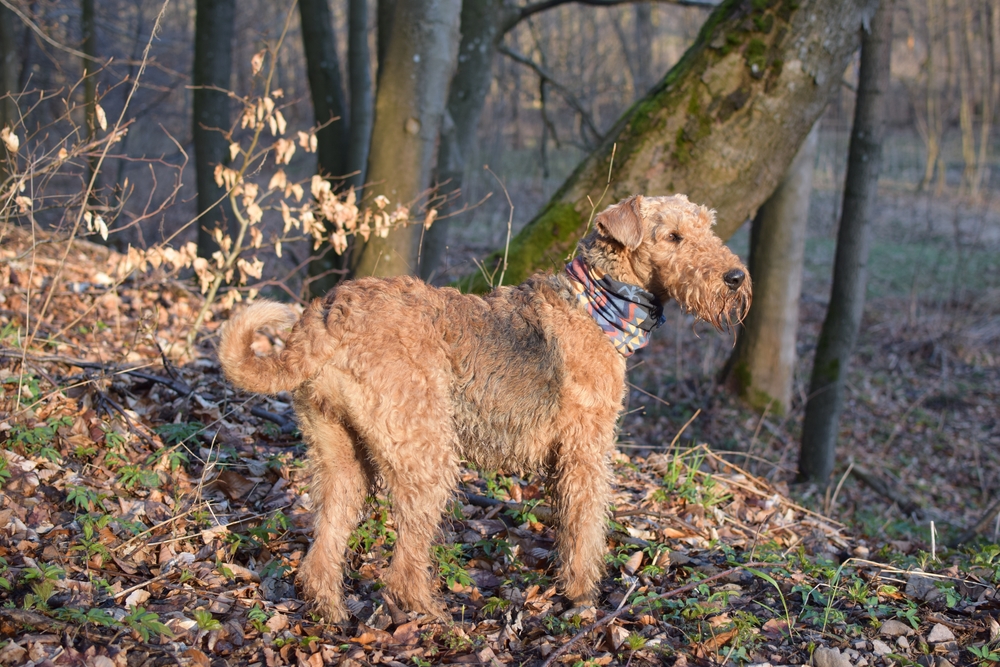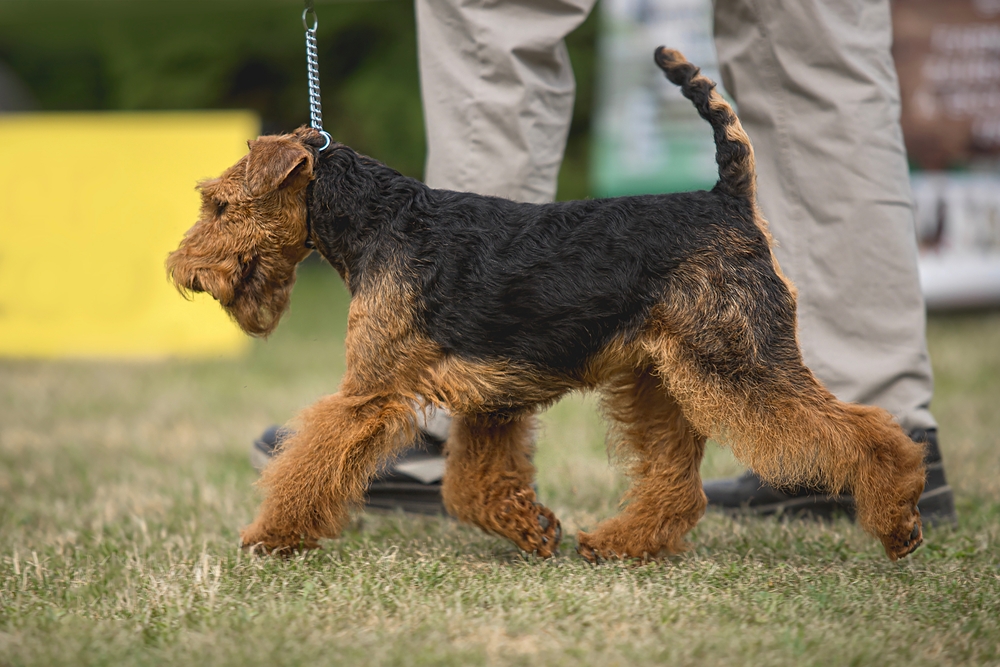Airedale Terrier as a Therapy Dog for Children or Individuals With Disabilities
In this article, we explore the incredible potential of the Airedale Terrier as a therapy dog for children and individuals with disabilities. Airedale Terriers are renowned for their intelligence, loyalty, and gentle nature, making them excellent candidates for assisting those in need. We delve into their unique qualities, training requirements, and the immense positive impact they can have on the lives of those they serve.

Understanding the Airedale Terrier
The Airedale Terrier, often referred to as the “King of Terriers,” is a remarkable breed known for its versatility and adaptability. Originally bred in England, these dogs were developed to excel in various tasks, including hunting, guarding, and yes, even therapy work. They are medium to large-sized dogs with a distinctive black and tan coat, exuding an elegant and confident appearance.


Qualities that Make Airedale Terriers Ideal for Therapy Work
Intelligence: Airedales are highly intelligent dogs, quick to learn and respond to commands. This attribute is vital in therapy work, as they need to comprehend and follow instructions accurately.
Gentle and Affectionate: Despite their robust appearance, Airedales possess a tender and affectionate nature. They form strong bonds with their human counterparts, making them compassionate and empathetic therapy companions.
Energetic and Playful: Airedale Terriers have an abundance of energy, which makes them perfect for engaging in therapeutic activities. They can motivate and uplift individuals, encouraging physical and emotional interactions.
Good Temperament: Airedales are well-known for their stable and steady temperament, a crucial aspect when working with vulnerable populations. They remain calm in challenging situations, providing a sense of security to those around them.
The Role of Airedale Terriers as Therapy Dogs
A Helping Paw for Children
Airedale Terriers have proven to be highly effective therapy dogs for children with various disabilities or medical conditions. These remarkable canines can offer emotional support, companionship, and even aid in certain physical therapy exercises. Children feel at ease with the gentle and friendly demeanor of the Airedale, creating a positive and welcoming environment.
Assisting Individuals with Disabilities
For individuals with disabilities, Airedale Terriers provide more than just assistance; they offer independence and a sense of purpose. These dogs can be trained to perform specific tasks such as fetching items, opening doors, or guiding their handlers through crowded spaces. With their intelligence and adaptability, Airedales are capable of learning a wide range of skills tailored to the unique needs of each individual.

Training Airedale Terriers for Therapy Work
Effective training is the cornerstone of a successful therapy dog. Airedale Terriers are eager to please, making training a rewarding experience for both the dog and their handler. Here are some key steps in preparing an Airedale for therapy work:
1. Socialization:
Early socialization is essential for Airedales to develop a friendly and accepting attitude towards various people and environments. Exposure to different situations, sounds, and experiences helps them become well-rounded therapy companions.
2. Obedience Training:
Teaching basic commands like sit, stay, and come is crucial for a therapy dog. Obedience training ensures that they can follow instructions accurately while interacting with individuals.
3. Desensitization:
As therapy dogs, Airedales may encounter medical equipment, wheelchairs, or other devices. Desensitization helps them feel comfortable and confident in the presence of such equipment.
4. Positive Reinforcement:
Reward-based training methods, such as treats and praise, work exceptionally well with Airedales. Positive reinforcement enhances their willingness to participate in therapy activities.
5. Specialized Skills Training:
Depending on the needs of the individuals they will serve, Airedales can receive specialized training to perform specific tasks that aid in therapy sessions.
The Impact of Airedale Terriers in Therapy Sessions
The inclusion of Airedale Terriers in therapy sessions can lead to remarkable improvements in emotional well-being and overall quality of life. Here are some of the ways therapy dogs positively impact their human counterparts:
1. Reduced Stress and Anxiety:
Interacting with Airedales has been shown to reduce stress and anxiety levels in both children and adults. The presence of these loving companions creates a calming and soothing atmosphere.
2. Increased Motivation:
Airedales are known for their enthusiastic and playful nature, which can boost motivation during therapy sessions. Children and individuals with disabilities often find joy in interacting with these engaging dogs.
3. Enhanced Social Skills:
Therapy dogs encourage social interactions, improving communication skills and promoting feelings of connection and acceptance.
4. Physical Benefits:
In physical therapy, Airedales can assist with exercises, improving mobility and range of motion. Their participation can make the therapy process more enjoyable and effective.


Airedale Terrier as a Therapy Dog for Children or Individuals With Disabilities
Airedale Terriers possess a unique combination of qualities that make them exceptional therapy dogs for children and individuals with disabilities. Their intelligence, gentleness, and adaptability make them ideal companions for therapy work. With the right training and support, these remarkable dogs can bring about significant positive changes in the lives of those they serve.